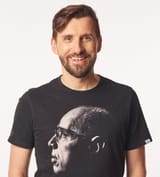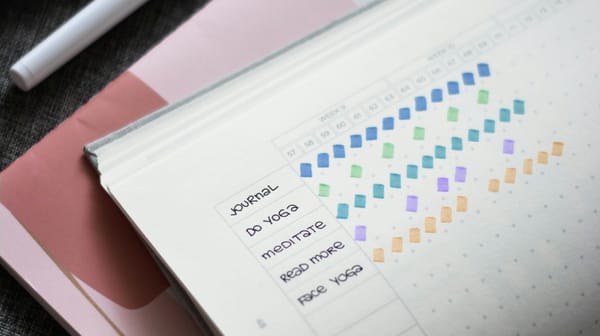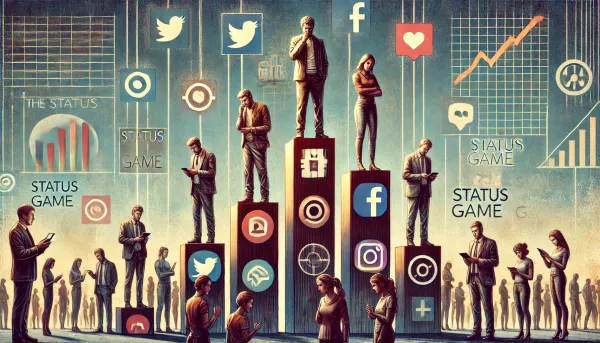It is not a career, it is a lifestyle choice
You are on a roll. You develop your career, change jobs, and responsibilities. Few years pass, and something does not click. You need to change. The big question is: what is the change and which direction should you choose? Are you choosing a job or a lifestyle?

You are on a roll. You develop your career, change jobs, and responsibilities. Few years pass, and something does not click.
You need to change.
The big question is: what is the change and which direction should you choose?
It is the second article in a mini-series triggered by discussions on career changes and development with people on Twiter and other social media. If you are interested in another related article(s), take a look here:
Recently I had a few discussions about picking a new direction or developing further a career. People I spoke with were not juniors. Those people were advanced. Some of them had jobs I would consider successful, and I bet people around them do the same. Based on those discussions, I've gathered these thoughts to set expectations:
-
It is not a list of occupations or positions to look for
-
It is not a career path advice
-
It is a reflection on my current thinking framework around the subject I shared with others.
When you come to this point - how to choose WHAT's NEXT?
Before I begin - one disclaimer: those are my thoughts, based on my experience and path. Your mileage may vary, so it is OK that you think take different approaches. Comments are open.
If you are new here and/or you are interested in what my path was - here is my take on it: My path to where I am now
When you are at a certain point of your career, and assuming you are not struggling for daily survival, reasons, and approach to change in a job takes a different shape.
In my case and from my observation case of many others, the questions change from my next career step:
-
What kind of lifestyle I want to lead?
-
How can I maximize my leverage in what I do?
It is not a career choice; it is a lifestyle
Putting aside the pure skills side of the question - if you are doing well and something is itching you, you need change. Before asking a question about what job to find next, you need to answer a more important question.
What kind of life I want to lead?
Seems philosophical. It is, but at the same time, it isn't. Suppose you feel this itching, and it is not financial or ambition. In that case, it is a sign that something in your environment is not clicking. Before looking for the next job or opportunity, after your initial skills acquisition period, it is good to decide what lifestyle you want to lead.
To discover it, you need to ask yourself some questions and be honest in answering those. What are those questions? I ask myself some of those:
-
Do I like spending time with people I work with and this environment?
-
Is it challenging for me (aka am I learning and developing some new thoughts and ideas)?
-
Do I contribute to the success of others around me (in the company environment)?
-
Am I happy with time split between what is essential for me?
Most important is what life you want to lead and with what you are comfortable:
-
Are you fine with someone assigning you tasks, or you don't feel good with it, and you want to work on your own terms
-
Are you OK with showing up at specific times and working particular hours, with less risk (which often is an illusion)? Or instead, you trade a bit more uncertainty in your life for being able to do nothing or pursuit your personal goal for extended periods?
-
Do you want to spend time with other people or prefer to be alone or with your close family and friends only?
-
Do you imagine yourself staying in one place for a couple of years, or rather change a place and environment every now and then.
In my current mental model around it, those are the questions I ask before thinking waht I want to do. (Not to mention that currently, I'm still OK with building Predica as a company.)
Then you can move to the next part of a thought process, but before that - one remark.
You need safety
To be able to think through it this way, you need safety.
What is as the safety net needed is:
-
Financial safety - if you will have trouble at the end of the month to cover your bills, security is tough to achieve
-
Family or what you consider your close circle - people you think as your closest circle, need to be on-board with your choice. If not, they at least need to understand that you know what you are doing. It contributes to your safety and removes unnecessary friction in your life.
-
Be on good terms with yourself - yes, you need a friend who will not second guess your opinions without constructive voice, and you need him in your head. It doesn't mean you don't need to look at your actions and re-calibrate. You have to do it. It has to be constructive, and you need to like the choices you are doing.
Whatever choices you will want to make, having safety in those areas is something you will always appreciate. It will make your life easier. Notice that all these items are well within your reach and control. There are no external factors. Even if you will think about financial safety, it is well within your control and ability to achieve it. Of course, it is a matter of priorities you put for yourself in this pursuit (hard to achieve it if you decide to spend all money you earn immediately).
How I can use what I already learned as leverage?
The next question I ask would be where I can gain the most significant leverage on what I have already learned?
How I define leverage? It is how I can use my time to multiply the effect of my efforts to:
-
Do more in this area with others
-
Pass what I know on others to develop them
-
Allow me to do something different then what I already did and know.
In this, I'm a bit selfish but also looking at developing others:
-
I have learned something, and I used it before, I want others to know it as well and use it (development of others)
-
When others will know how to do it, I will not have to do it :) (my selfish part)
-
I will be able to learn other things and pursuit goals in areas, where I have not known a lot yet and I want to improve (my development and being a bit selfish element)
Over time, I've found out that leveraging what I already know through others, free time to learn new things, or pursuing other topics is more important. Over time you can make career choices focused more on leveraging your past experiences than on particular technical skills or tasks.
Think about the person you are - you have a couple of them
It is connected with an extra topic or mental model: personas you are! Why?
Each one of us has some personas you developed over time. Some of them are related to your private life (father, brother, husband, friend). Others are related to our professional career (developer, specialist, finance guy).
Those personas can be so strong that they define who you are in specific aspects. It defines you as an authority for others in this area. It is a thing that lets you get where you are now. It is your defining thing.
If your entire career was built on being a brilliant developer, it might be hard for you to pursue something else, which will need you to do less of it.
When thinking about your next career step, think about your personas. Writing it down helps. Think about those you associate with most.
-
Do you want to keep to it? Why?
-
Does keeping it limit you in one of those earlier things -> pursuing your desired lifestyle and leveraging your past experience to free time for new things?
-
Do you feel comfortable thinking that you will not be the best at a given thing anymore? (relax, it is not going away)?
Then you can ask another question: If not this one, what I want to pursue next? What will be my next persona to build?
Giving up is hard, but you will have to give up on something
Why answering questions about your current persona and what you want to pursue next is essential? Because following your desired lifestyle and new career path, it might be required to give up on part on something which was your identity so far.
Giving up on it is hard!
It is, believe me! How do I know? Because I decided to give up on a couple of things that were part of my identity.
-
I gave up on knowing every detail in my technical area (I still do it, but I know I don't have to learn and understand it on my own)?
-
I allowed myself to think that I will not do what I was doing for the most part of my life anymore (technical consulting)
From a professional career point of view, it meant that I have to give up on a lot of things that built my identity. And I did it.
I gained something instead of what allows me to build my next 20-30 years of life :).
My career development mental model (as of now)
Being in this place and time, my current mental model decides if I want to change something, and what it should be is based on these three parts:
-
What lifestyle I want to lead, and what career choices and paths support it?
-
What is my leverage in it, to free time and capacity for new opportunities for me?
-
What persona I want to develop or what is interesting for me next?
If you will think about it, it is about maximizing what you want to do and minimizing the things you want to avoid.
I also recommend to you to read Sebastian Gebski blog post around the same topic Clarity. It makes a difference.. It provides a bit different angle to the same issue.
Photo by Javier Allegue Barros on Unsplash



